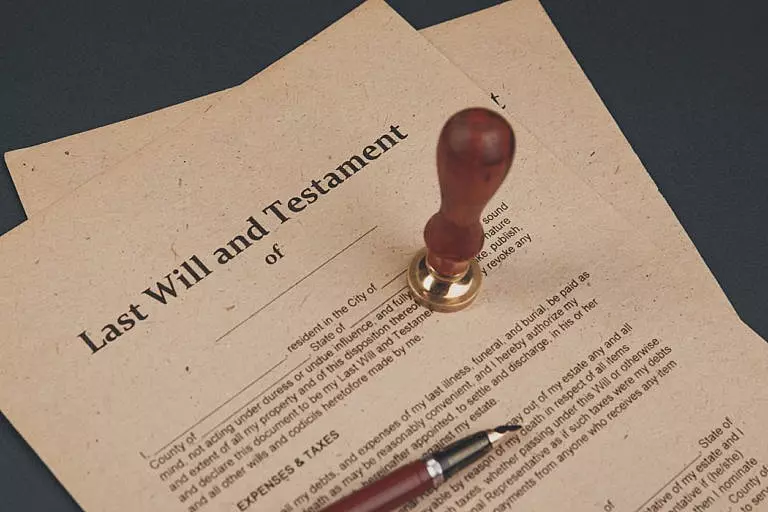Perhaps someone has approached you to be his or her personal representative (aka executor), or perhaps you have been named earlier by someone who recently passed away. Are you feeling a bit overwhelmed or confused? If so, you are hardly alone. The best step to take if you find yourself in this situation is to contact a knowledgeable estate planning attorney for reliable guidance. If you are in Massachusetts, the accomplished law firm of Surprenant & Beneski is well-prepared to help.
In all probability, you know the person who has asked you to fill this position very well, though it is also possible that a family member died without a will (intestate) and the court has appointed you as personal representative. In any case, although you may be honored to have been chosen, you should be aware that being an executor may be more challenging than you realize.
How to Get the Help You Need to Be a Competent Executor
It is important to know that you don’t have to take on this role; you may decline the post. However, if you do decide to perform the duties of a personal representative, the assistance provided by an attorney who is well-informed about what an executorship involves will make your job immeasurably easier.
There are some important things you should know before taking on the responsibilities inherent in the job.
1. Being a Personal Representative May Take More Time than You Expect
The amount you are entitled to will vary according to the size and complexity of the testator’s estate; you are entitled to a “reasonable” amount of payment for your services. Depending on how much work is involved and how close you are (or were) to the testator, you may feel well-rewarded or underpaid since the job entails:
- Paying for the funeral out of estate assets
- Readying documents (e.g the death certificate) to be filed for probate
- Gathering and recording assets and having them appraised if necessary
- Paying debts to creditors from the estate’s assets
- Filing tax returns; making needed payments on both income and estate taxes
- Distributing remaining estate assets to beneficiaries as stipulated in the will
2. There May Be Unforeseen Complications in Executing the Will
Though relatively rare, you may find yourself dealing with a situation you are unprepared for, such as someone contesting the will, debts you were unaware of, or a lawsuit against the estate. It is even possible that one of the beneficiaries will challenge your capability to be executor. If this type of circumstance arises, you will be glad to have an experienced estate planning attorney at your side, offering good advice and strong legal advocacy.
3. Even if the Will Is Not Contested, There May Be Family Squabbles
In most cases, it will be helpful, or even necessary, to have at least a minimal familiarity with legal terms and financial matters if you are serving as an executor, especially if you are dealing with a substantial estate. In some cases, however, it may be necessary to have some diplomatic capabilities. You may be called upon to serve as a bit of a mediator among family members who feel they have been slighted by the deceased or are being unfairly treated by other relatives.
4. You May Lack Some Necessary or Helpful Information
Assuming you have contact with the testator before she or he passes away, you should make every effort to find out:
- The general parameters of the estate — assets, trusts, businesses, beneficiaries
- The location of the will and other important documents (e.g. insurance policies)
- How you will access electronically held information (e.g. bank accounts)
- The testator’s wishes about burial or cremation, funeral or memorial
- How the testator wants specific personal possessions distributed and why
- Who the testator’s professional advisors are — e.g. accountant, financial advisor, lawyer — and how to contact them
Not having access to the above information may make your experience as an executor much more difficult not only logistically, but emotionally (for instance, if a family member questions why another relative received something valuable and/or cherished).
Be an Effective Mass. Executor — Work With Our First-Rate Estate Planning Attorneys
Unless you’re a legal professional, taking on the duties of a personal representative can be daunting, especially if you will be handling a large estate with complex holdings. Give yourself a leg up by consulting with one of our superior attorneys before you begin.
©Surprenant & Beneski, P.C. 35 Arnold Street, New Bedford, MA 02740, 336 South Street, Hyannis MA 02601 and 45 Bristol Drive, Easton MA 02375. This article is for illustration purposes only. This handout does not constitute legal advice. There is no attorney/client relationship created with Surprenant & Beneski, P.C. by this article. DO NOT make decisions based upon information in this handout. Every family is unique and legal advice can only be given after an individual consultation with an elder law attorney. Any decisions made without proper legal advice may cause significant legal and financial problems.
